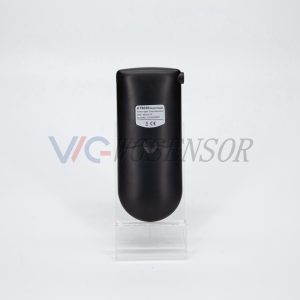Alcohol breathalyzers, also known as breathalyzers or breath alcohol testers, are devices designed to measure the concentration of alcohol in a person’s breath. Widely used by law enforcement agencies, these devices play a critical role in ensuring road safety and enforcing alcohol-related laws. Let’s delve into the science behind these instruments and their significance in maintaining public safety.
How Do Breathalyzers Work?
Breathalyzers operate on the principle of measuring the amount of ethanol (alcohol) in a person’s breath to estimate the blood alcohol concentration (BAC). When a person consumes alcohol, it gets absorbed into the bloodstream and is eventually exhaled through the breath.
The device utilizes a chemical reaction involving ethanol that occurs on an electrochemical sensor or a fuel cell inside the breathalyzer. As the exhaled breath comes into contact with the sensor, any alcohol present causes an electrochemical reaction, generating an electric current. This current is then measured and converted into an estimate of the individual’s BAC.
Accuracy and Calibration
Accuracy is a critical factor in the functionality of breathalyzers. Regular calibration and maintenance are necessary to ensure precise readings. Environmental factors, residual mouth alcohol, or certain substances (like mouthwash or medications containing alcohol) can potentially affect the accuracy of the results.
Law enforcement agencies and manufacturers follow strict calibration protocols to maintain accuracy. Routine checks and calibration against known alcohol concentrations are performed to guarantee reliability in the readings.
Importance in Road Safety
Breathalyzers play a vital role in preventing alcohol-impaired driving incidents. Law enforcement officers use these devices during traffic stops to determine if a driver’s BAC exceeds the legal limit. This helps in enforcing laws related to drunk driving and ensures the safety of all individuals on the road.
Limitations and Considerations
While breathalyzers are a valuable tool in detecting alcohol levels, they are not without limitations. Factors such as individual metabolism, health conditions, and the time elapsed since alcohol consumption can affect the accuracy of readings. Moreover, breathalyzers might not differentiate between alcohol from beverages and alcohol-based products used for medical or hygiene purposes.
Conclusion
Alcohol breathalyzers serve as essential tools in promoting road safety and enforcing laws related to alcohol consumption. Understanding their functioning, limitations, and the need for proper calibration is crucial in ensuring their effectiveness. These devices not only aid law enforcement but also contribute significantly to public safety by discouraging drunk driving and reducing potential accidents caused by impaired drivers.


Please contact us for free quotation by form below. We promise the quickest response within 24 hours: